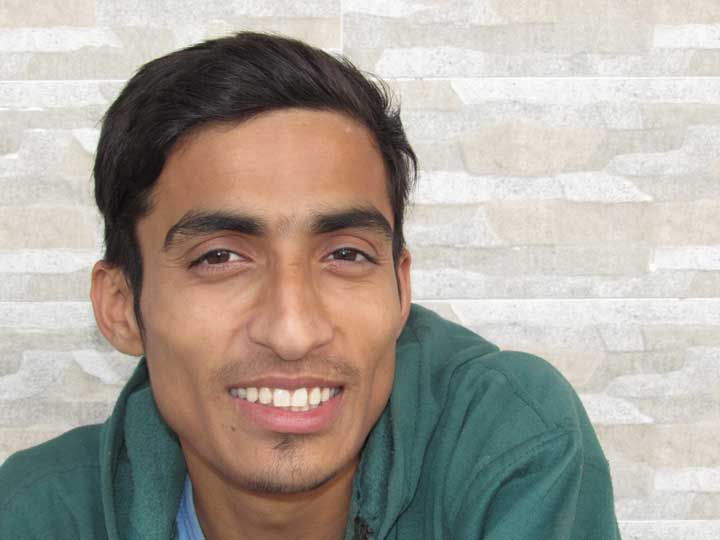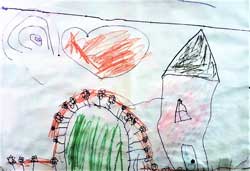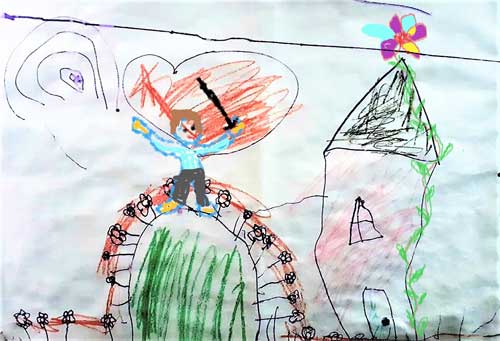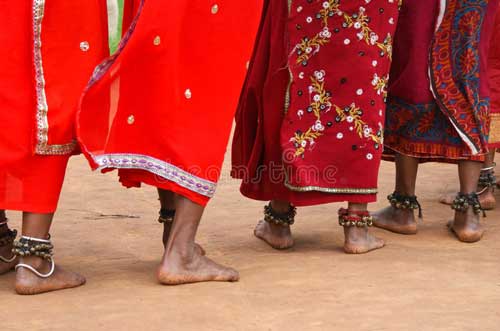A teacher wanted to visit. She wanted to see my million-dollar smile. That created a problem. Had I lost the smile she remembered? That smile was before the circus of trying to find a diagnosis. Before enduring the probing, pricks, needles, scans, everything I called my “Frankenstein testing.” The million-dollar-smile was before a gruelling 7-hour surgery that left 13 screws in my neck. It boils down to pain. Prolonged pain. She wanted to visit; I wanted to lock the door. What kind of a teethy grin would I give her? It would be a pretend smile. I’d be exposed. A million-dollar-smile has high expectations. I’m a useless actor. Was there even a sincere smile anywhere in me? Every smile took concentration and effort. I could almost count the seconds that a smile would stick to my face.
The days and weeks after surgery became a routine of sitting, resting, doing nothing, working hard to keep my neck comfortable while doing nothing. I lived a boring and very taxing reality. It didn’t take long to realize that I didn’t want to waste my days being unhappy. I wanted to rediscover my smile. A smile shouldn’t depend on happiness or circumstances. A smile is not a stealable commodity, so no one could have taken it; it’s losable, though. So where was mine? If I once had that priceless smile, maybe it got buried somewhere deep inside me. I decided to do my own surgery and transform myself into an excavation site. I’d dig for buried treasure. Surely, that million-dollar smile had to be in me somewhere?
Thinking about pain was easy, but navigating the roadblocks around it seemed insurmountably difficult. And yet, if I truly once possessed a million-dollar-smile, was it still there? I began to dig. When one hole produced nothing, I dug another —and another. I was determined to find the buried treasure.
Before and after my surgery I read Psalm 23; read it, spoke it, sang it… over and over again. I was totally mesmerized by it. A friend wrote an article on Psalm 23: I always wondered what this part of Psalm 23 meant. I thought “He anoints my head with oil” was figurative language for God keeping the Psalmist healthy. Ha! Alas no, here are the facts:
“Sheep can get their head caught in briers and die trying to get untangled. Horrid little flies torment sheep by laying eggs in their nostrils which turn into worms and drive the sheep to beat their head against a rock, sometimes to death. Sheep ears and eyes are very susceptible to nasty insects. Thus, the shepherd anoints their whole head with oil. Then they have peace. That oil forms a barrier of protection against the evil flies and insects who try to destroy the sheep.
Pain can be overwhelming, devouring all your time and thought, keeping the focus solely on you. Pain is like a mind in captivity controlled by depraved, negative, depressive thoughts. How can worry and fear not follow? Sheep, in their helpless torment against predators beat their heads against a wall. Wasn’t I doing the same thing? Pain was culprit that kept my smile in captivity and I hadn’t even realized pain had captured my mind as well!
The deeper meaning of Psalm 23 claims that God anoints us with oil to guard our thoughts, to help us live beyond pain, to provide us with a peace that passes understanding. With this anointing, the darkest valley holds no scare, we dance right through it. We can surf above the churning undertow and coast on the overflow; his cup overflows and fear takes the brunt of our heel. (Don’t be afraid to kick hard.) We are drenched in love.
If Psalm 23 is just a mish-mash of poetical words God is a liar. If God doesn’t lie, it’s safe to say the Lord is our Shepherd. That’s how “the dig” at my excavation site began. I had to dig deep. It took time but I found the buried treasure I was searching for. It was underneath pain, fear, worry, and pride. It hadn’t been used for quite a while and needed some dusting off. But it was my own lost million-dollar smile. I brushed it off, tried it on, and hoped that the teacher coming to visit would still recognize me. If not, I’d have to make a new entrance. At least now, I know who wears the smile —and its permanently fixed.
Would I wear my million-dollar smile if I had to experience the pain of the world? The meaning of Jesus’ sacrifice sets us free to live life fully. The complete reality of what this means doesn’t enter our imagination. We cannot gage all that it encompasses. But God calls us his sheep, and we call him our Shepherd because each of us has their own million-dollar-smile to wear. A smile solely yours.
I wrote Psalm 23 in Song over those months. I wanted it to be right. I sang straight into my computer, no mic. Now I appreciate that my song will never be perfect because I am a sheep. I beat my head, make mistakes and bad decisions, get depressed… I am human and that won’t change. I walk through valleys, which during those times, seem very dark and low. The chorus has to be sung over and over so that I know he is with us and anoints us with oil. He is my shepherd. I am not alone. I present an imperfect song… it’s perfectly human. Jesus knows that.
Psalm 23 in Song
The Lord’s my shepherd he restores my soul
When I walk through death —valleys dark and low
I fear no evil; he guards and comforts me
Lays a feast while those against me watch.
He anoints me with oil and my cup overflows.
In the overflow I stay and let it run down my robe.
I’m anointed with oil, and my cup overflows
In the overflow I live and am drenched from head to toe.
The Lord’s my shepherd, can I lack at all?
His presence fills me up; beside him I stand tall.
He guaranteed to lead me quietly,
The darkest valleys hold no scare for me.
























